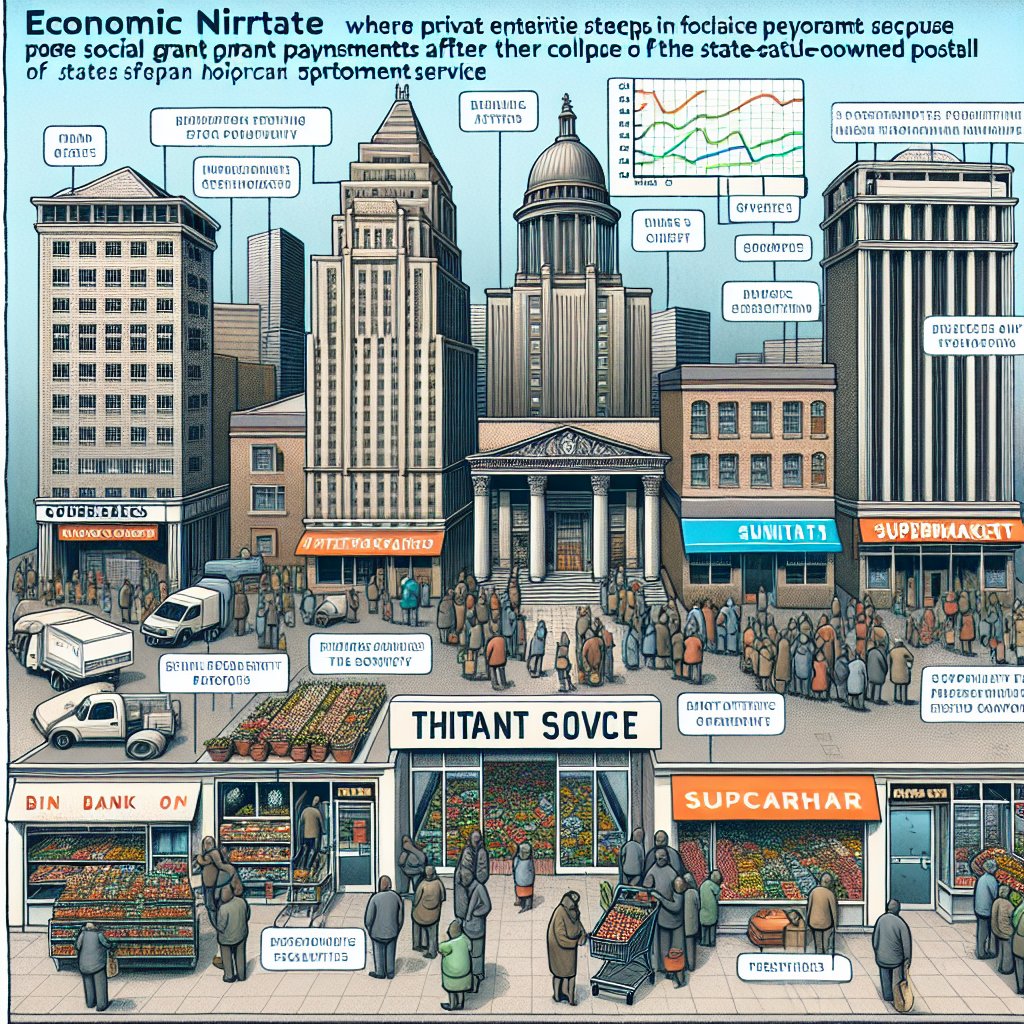Content created by AI
Private Sectors Step In for Social Grant Payments Amid Post Office Woes
The recent decline of the South African Post Office (SAPO) has created a notable gap in the social grants payment system, a lifeline for millions. As SAPO undertakes a substantial restructuring that will reduce its branches to 600 and cut staff down to 5,000, private entities are lining up to fill the void in serving the nation's 18 million social grant beneficiaries.
The Post Office's ongoing business rescue process has received creditor backing, but this gives rise to significant concerns over its capability to manage social grant disbursements, which include pensions, disability grants, and the Social Relief of Distress (SRD) grants. With the Postbank's preexisting struggles, this service shrinkage could hit the most vulnerable sectors of society particularly hard, underscoring the government's broader struggle to maintain basic services, necessitating private sector intervention.
Industry experts have been vocal about this shift, with Denker Capital's Kokkie Kooyman emphasizing the strategic need for the government to proactively engage with private partners. Such a move could not only ensure continuity in payments but also generate additional state revenue and influence over who would succeed SAPO as the payments facilitator, avoiding the chaos of a rushed sale during a potential liquidation scenario.
Professor Alex van den Heever from Wits University anticipates that the grant payment system will transition towards South Africa's banking infrastructure. This change could enhance both efficiency and reliability, but it raises questions about the main contenders in this emergent framework. Financial institutions previously involved in grant disbursement and beneficiaries already accustomed to receiving grants through banks are poised to pivot quickly to this new arrangement.
A newly competitive environment has arisen, with significant interest from various financial service providers. Aside from the traditional big banks, retail giants such as Shoprite and digital banks like Tyme Bank have expressed their eagerness to engage with social grant payments. For Shoprite, the introduction of their Money Market Account as a vehicle for grant payouts presents a strategic move to boost in-store spending. Conversely, Tyme Bank could leverage its array of financial products, including pre-payment advances, to deepen its customer relationships.
This imminent market expansion is not just about service provision; there is a clear financial incentive for interested parties. Companies partaking in the payments will handle substantial monetary inflows that could potentially boost deposits, savings, and transactional account activity. More so, the valuable spending data of the grant recipient demographic could spur the development of tailored financial products that cater to their specific needs, enhancing financial inclusion.
Shoprite's proposition, which includes a seamless switch to their account, comes with limitations related to cross-selling other services. But for organizations like Tyme Bank that possess a broader service spectrum, the opportunities are richer — from offering credit, loans, and insurance products to investments, they could potentially reshape the financial landscape for millions of South Africans.
The stark reality that private companies may soon become the central cogs in the engine of South Africa's social grant system echoes the larger narrative of state dependency on private sector efficiency. This impending transition from a predominantly government-run service to a more commercially-driven model underscores a pivotal period of change in how social support is administered in the country. However, it's imperative for any commercial arrangement to prioritize the needs of the beneficiaries and ensure that these services remain accessible and user-friendly to those reliant on them.
As with all significant shifts, careful consideration and adherence to the best interests of the affected population are paramount. The stakeholders, including the government, financial institutions, retailers, and more importantly, the grant recipients, are poised at the cusp of a paradigm shift that could redefine the future of social grant payments in South Africa.










